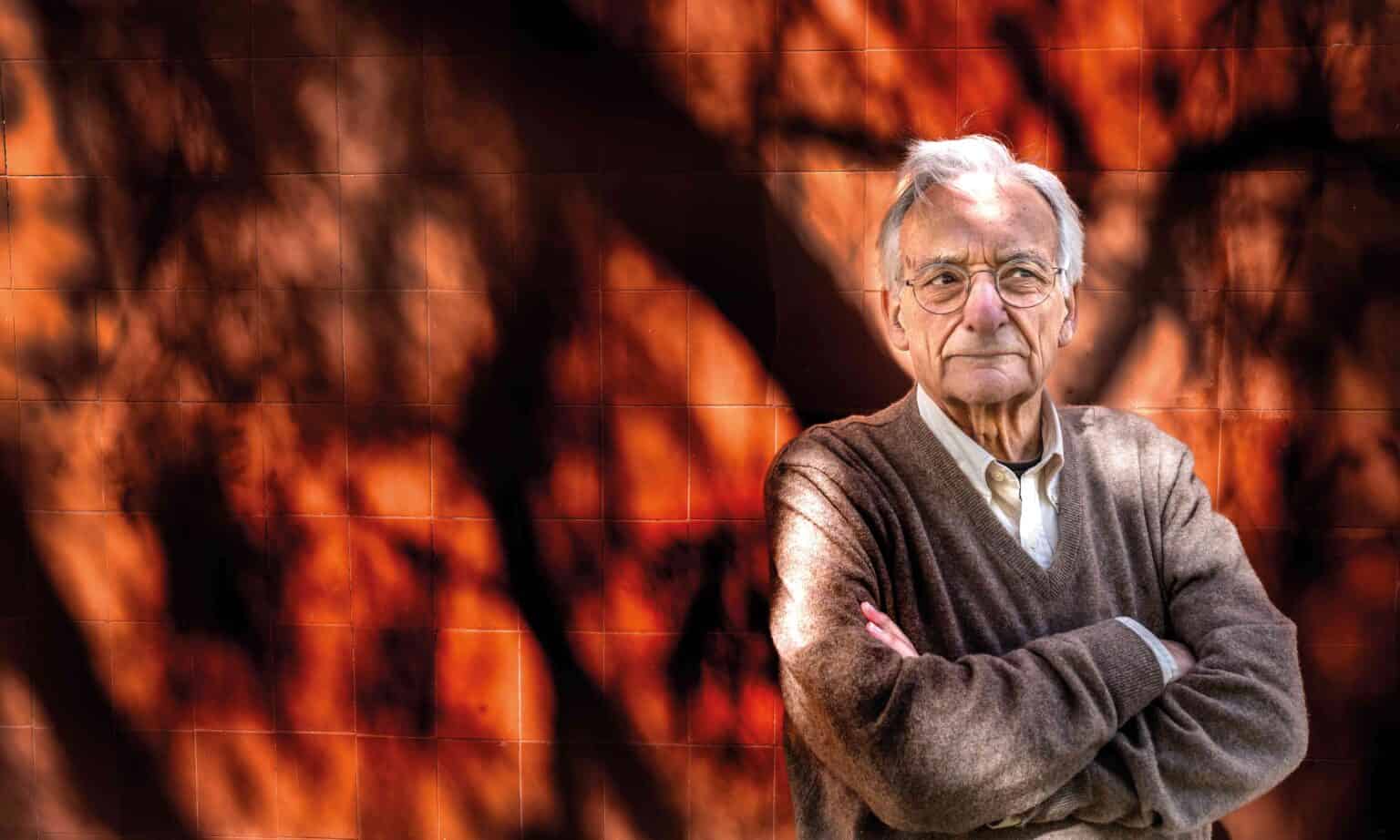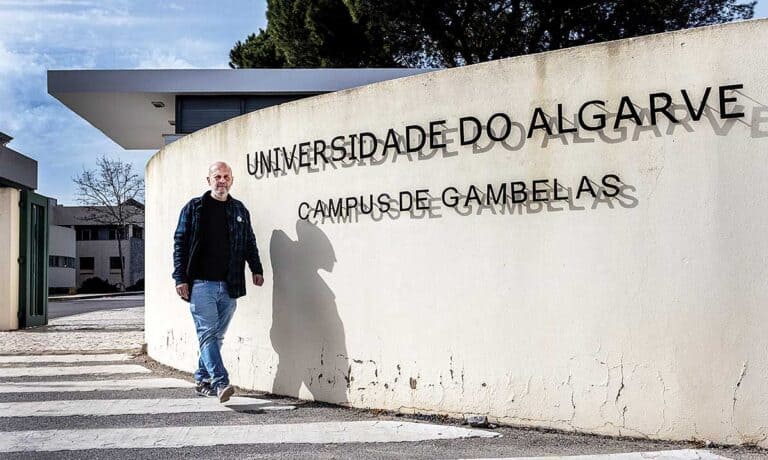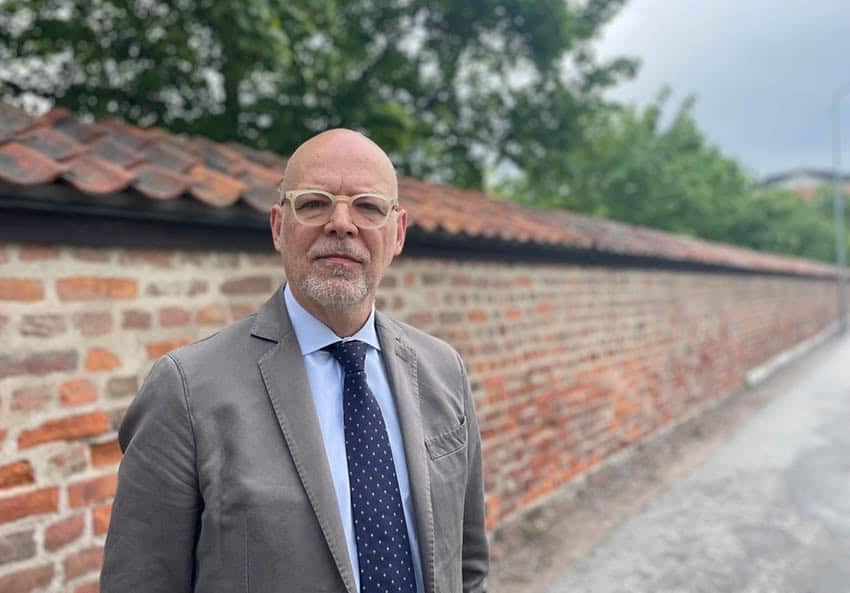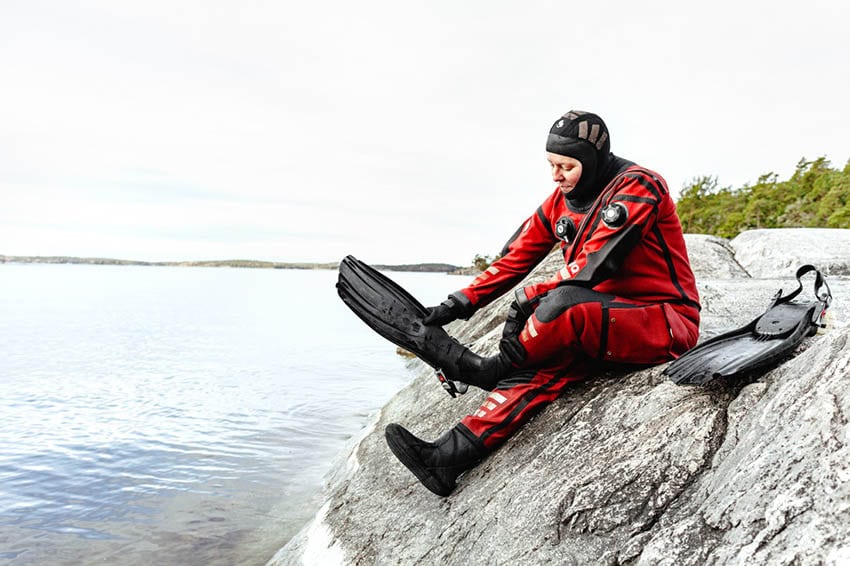Prison is like a university for political resistance. Law student Fernando Rosas was one of several students arrested in 1965 for protesting against the Portuguese Estado Novo (New State) dictatorship and the colonial wars in Africa. He was sentenced to 15 months in prison.
“Inside, we organised ourselves, read books, had discussions and prepared to continue the fight against the regime. For me, a student from a middle-class background, it was also educational to sit down with factory workers. It was an important source of knowledge about society,” says Rosas in his deep, slightly rough voice.
He sits at the dining table in his home in north-east Lisbon. The sun pours in through the skylight, which is wet from the morning’s rain. Today, Rosas is a professor emeritus of contemporary history and remembers the time at the end of the longest dictatorship in Europe in the 20th century, led by António de Oliveira Salazar, who was a professor of economics.
“The student movement was in the front line of the resistance to the dictatorship, largely because of the wars in the colonies that awaited students after graduation.”
The resistance was also linked to the opening up of universities to people other than the upper class in the early 1960s. Higher education was not an instrument for growth or for people to improve their lives and prospects, explains Fernando Rosas. For a long time it was about maintaining the hegemony of the ruling upper class.
“The universities were also largely divorced from research. Even when the regime began to understand that research was important for industrialisation, centres of research were created outside the universities so that young people would not get any new ideas.”
Anyone who wanted to work in academia was vetted by the political police, who had the right to arrest anyone deemed to be against the regime.
“Even those who managed to stay under the radar and get in could still be fired if they showed clear resistance.”
On top of a hill in central Lisbon sits the Instituto Superior Técnico, a technical institute that is part of the Universidade de Lisboa. João Cunha Serra is a retired university lecturer in telecommunications and former head of the higher education department of Fenprof, an organisation that brings together teachers’ trade unions. He stands at the entrance to the white building and looks out over the long rectangular lawn that runs down to a large street.
He remembers 4 December 1968, when students broke into a building and had a political picnic to protest against the terrible food in the cafeteria and other issues.
“That day, I woke up politically. Until then I had not been interested in such matters. But I heard the speeches about nutrition and the colonial wars, became an activist and later one of the leaders of the student union.”
“That day, I woke up politically. Until then I had not been interested in such matters. But I heard the speeches about nutrition and the colonial wars, became an activist and later one of the leaders of the student union.”
João Cunha Serra
He says that the regime monitored and controlled course plans and how the universities organised and ran their activities. The university director set up cameras to identify and then suspend the more active students.
“At the same time, there was slightly greater freedom at the university than outside. The students could speak and write in a different way than out in society in general. But if they went too far, the police came, which meant that the atmosphere was always tense.”
Serra finds it interesting that people who were doing their military training also came to Técnico to study various engineering programmes.
“They heard, saw and read things that they could find anywhere else. We would like to believe that what we in the student union did was part of the foundation of the military movement that then led to the revolution. We trained them to be engineers but also taught them to fight for freedom.”
João Cunha Serra became a teaching assistant in telecommunications and participated in the research that was beginning to take shape at the university. The student protests became increasingly intense and the police regularly came to the institute. After a student strike in the spring of 1974, the police closed the university for several months. Serra and other teaching assistants gathered to show solidarity with the students.
“If the revolution hadn’t happened, then I would have been suspended.”
Fernando Rosas managed to get his law degree, but was later sentenced to another 14 months in prison. He was tortured by the guards, who kept him awake for several days on end. They forced him to stand, and when he was about to fall asleep they poured water over him or beat him. In the end, his feet were so swollen that he could not stand up.
“The most important thing was to resist and not give them any information that could put my friends in the same situation.”
The third time the political police tried to arrest Fernando Rosas, he managed to escape and went underground with the resistance movement. At six in the morning on 25 April 1974, he was woken up by the landlady with whom he lived. Soldiers of the organisation Movimento das Forças Armadas, (MFA – the Armed Forces Movement), had taken over the radio station, saying that they were acting to liberate the country.
People poured into the streets and met the soldiers with red carnations. With just four people dying, it was one of the least bloody revolutions in history.
“A Portuguese poet said that this was the first day of the rest of our lives, and it really was,” says Rosas, clasping his hands together enthusiastically as he talks at home at his kitchen table.
“25 April was the end of the fear, repression, terror and everything else that the dictatorship stood for over so many years. Democracy was not given to us in Portugal, we conquered it.”
“25 April was the end of the fear, repression, terror and everything else that the dictatorship stood for over so many years. Democracy was not given to us in Portugal, we conquered it.”
Fernando Rosas
At Técnico, Serra shows us into the management office’s reception. Among the rows of portraits of former university directors is a black-and-white picture of him. At the age of 28, he became the new university director after the revolution. The institute was led at that time by a board consisting of teachers, students and other staff.
The students’ votes carried as much weight as those of the teachers, and one of the things the board decided was to regard the teachers’ assessments as just suggestions and that the students in the teaching groups would vote collectively on each student’s grades.
“It was difficult to manage the university under those conditions. It was an incredibly intense time. We hardly slept. One of the things we had to do was remove the teachers who had been loyal to the regime. We could not let them teach at a democratic university. Also, some teachers did not want to accept the students’ opinions regarding grades and were forced out.”
After barely a year, João Cunha Serra moved on to work at the government offices, where he stayed for a year. He saw how rights such as freedom of speech and freedom of association were introduced. He then returned to Técnico as a teacher, and he began working part-time for the trade union organisation Fenprof.
“Now we had the freedom to design our own course plans, what the students needed to learn to become engineers. We could research, read, write and discuss whatever we wanted without fear of being imprisoned or censored.”
In the years that followed, a democratisation of education took place, and more people from different sections of society began to study at university.
“Democratisation was important, but it is not yet complete. The proportion of students from lower social classes who come to the university is still significantly smaller than the proportion from the upper classes.”
Fernando Rosas worked politically on the left with social reforms for a number of years after the revolution. He returned to the university in the 1980s. His experiences resisting a fascist regime led him to focus on contemporary history and the Estado Novo regime.
The transition from dictatorship to democracy was difficult for academia, he says.
“The old university collapsed, but the old spirit remained in the walls. We had to wait for powerful teachers to leave in order to be able to create new generations of academics with new ideas.”
“The old university collapsed, but the old spirit remained in the walls. We had to wait for powerful teachers to leave in order to be able to create new generations of academics with new ideas.”
Fernando Rosas
As there was no research into contemporary history, Rosas set up the independent institute Instituto de História Contemporânea in 1999.
“There was so much to study, especially Estado Novo. The dictatorship had stopped everything connected with contemporary history. There was only propaganda. There were no studies, no scholarships, no knowledge.”
It was not until the beginning of the 2000s, he continues, that the government began to formulate a proper policy for scientific study, set up new centres of research and make those centres that already existed part of the universities.
“Previously, they were outside the higher education institutions and had no money. Now it is different. Today there are many research centres that are connected to universities and supported financially by the Ministry of Research.”
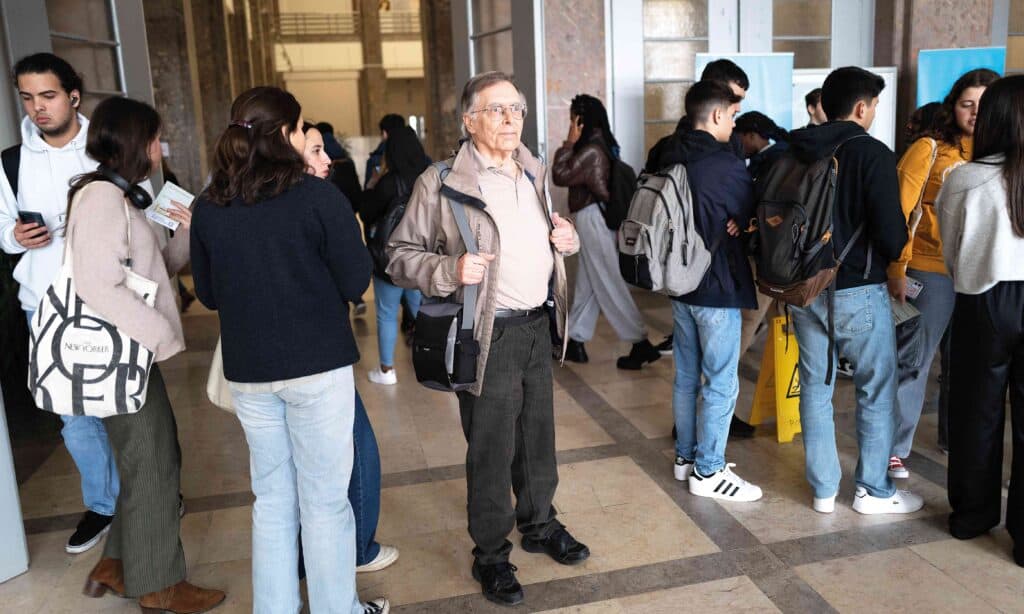
Up on the hill at Técnico, João Cunha Serra tells us that the student movement has changed a lot since the revolution. Students are less politically engaged these days, he believes, and care more about their own careers.
“They no longer gather together and it is difficult to engage them politically. Participation in student union elections is low. I think it is because they now have the rights that we fought for.“
Serra is now 78 years old, still active in Fenprof and actively engaged in today’s major labour rights issue: the precarious employment of researchers.
“Right now I am writing to the Ministry of Education to try to prevent researchers from losing their jobs when their short-term contracts expire. Politicians need to do something.”
“Right now I am writing to the Ministry of Education to try to prevent researchers from losing their jobs when their short-term contracts expire. Politicians need to do something.”
JOÃO CUNHA SERRA
João Cunha Serra retired in 2015, and one of those who have since taken over the leadership role is André Carmo. He represents Sindicato dos Professores da Grande Lisboa, (the Greater Lisbon Teachers’ Union), which is part of the umbrella organisation Fenprof.
The fight against job insecurity is one of the issues that the union has worked on most intensively in recent years.
“We have a strong division between researchers and teachers in Portugal. Scientists do teach as well, and vice versa, but there is a huge gap between what their career paths look like. Trying to bridge their different realities is one of our biggest challenges as a trade union,” says Carmo, who is a senior lecturer and Doctor of Geography at the Universidade de Évora.
He shows the way up the stairs at the Universidade Aberta in Lisbon, where he works on Fridays through a collaboration with the Research Centre for Global Studies. The building is from the 18th century, with red carpets and walls adorned with gold details and blue and white mosaics.
“90 percent of researchers have precarious employment. People spend their entire academic careers, anywhere from ten to twenty years, on scholarships and short-term contracts. It is a difficult situation.”
Fenprof has carried out a survey on the consequences of this insecurity for researchers. “We see high levels of mental ill-health in the form of burnout, depression and loneliness. Many people also give up and leave academia.”
In May, hundreds of researchers from all over Portugal gathered at the Universidade de Lisboa to demonstrate against precarious employment and marched to the Ministry of Research, Technology and Higher Education.
“It was a unique event. It may have been the largest public demonstration involving scientists in Portugal ever. But we have reached a point where the insecurity is too great to ignore. Fenprof has also collaborated successfully with several other organisations in recent years.
In 2017, the then Minister for Education introduced a decree to convert scholarships into permanent contracts. But that was not a good instrument to solve the issue of precarious employment, says Carmo, because it focused on short-term contracts.
Some scholarships were turned into three-years contracts, which are then renewed annually for up to six years. If the researcher is employed by a state university and has received positive evaluations throughout the six years, the institution must then create a permanent position.
“What is happening now, in the transition between years five and six, is that many institutions try to give negative evaluations so they will not be forced to create new positions,” says Carmo.
Fenprof estimates that between 2,000 and 3,000 researchers are in that situation.
“Most of them will be unemployed in the next three years. Many researchers have already lost their jobs.”
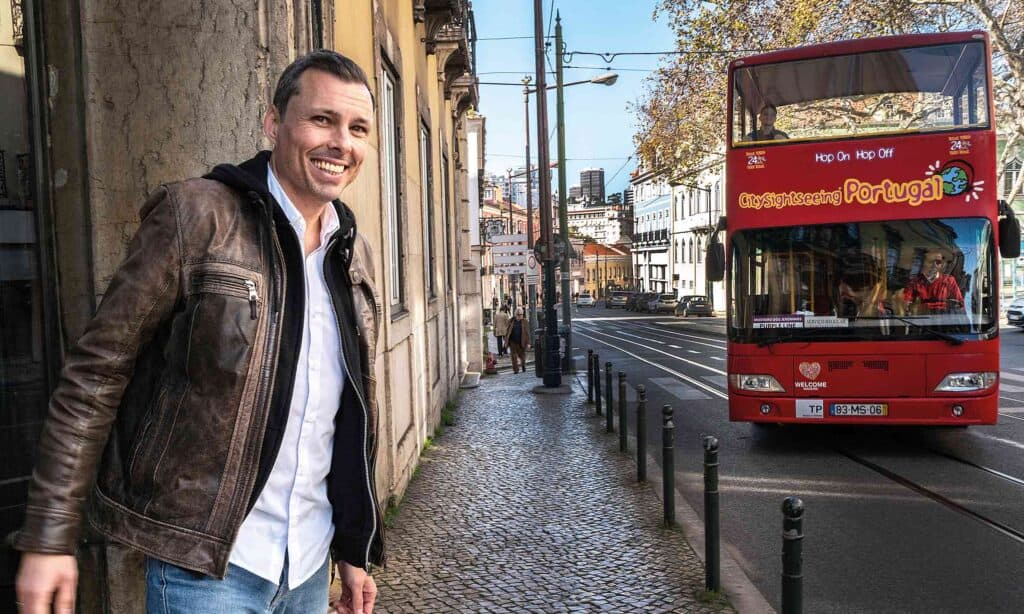
André Carmo says that the union has been contacted by a number of researchers about strange cases. They may have had good evaluations of their work and performance for five years, only to suddenly receive a negative evaluation in the final year. Fenprof is currently investigating what is going on and assessing the universities’ arguments.
“We have found some odd things, such as external members of the evaluation committee giving positive evaluations, while the participants from the researcher’s own university were negative. And the internal opinions carry greater weight.”
Teachers also have similar problems when it comes to career paths. Before, three years with good results in the annual evaluation were required for a teacher to take a step up on the career and salary ladder. In 2009, a reform was implemented that increased the time to six years and required excellent evaluations.
“That basically killed the idea of career progression, because you can have five years with excellent evaluations and one year with a very good evaluation – and then you stay at the same career stage. We have many dissatisfied teachers who began their careers as associate senior lecturers and will end their careers in the same position.”
In the upstairs study at the home of history professor Fernando Rosas, the walls are lined with bookshelves. On the two desks are piles of books with titles such as ”The New Faces of Fascism” and ”La Possibilité du Fascisme”. Rosas, 77, still conducts research at the School of Contemporary History and teaches a course on the history of fascism in Europe at the Universidade Nova de Lisboa.
Every year, the Carnation Revolution is celebrated on 25 April with large demonstrations across the country. This year, Portuguese democracy celebrates its 50th year.
“The anniversary is important and we need a strong 25 April celebration. Many of us feel that democracy is in danger because the extreme right is on the rise, not only in Portugal but throughout Europe.”
Are you worried?
“How could I not be? These people are not kidding. They want to revise history and undermine democracy. We had fascism 50 years ago and I just say – never again.”
